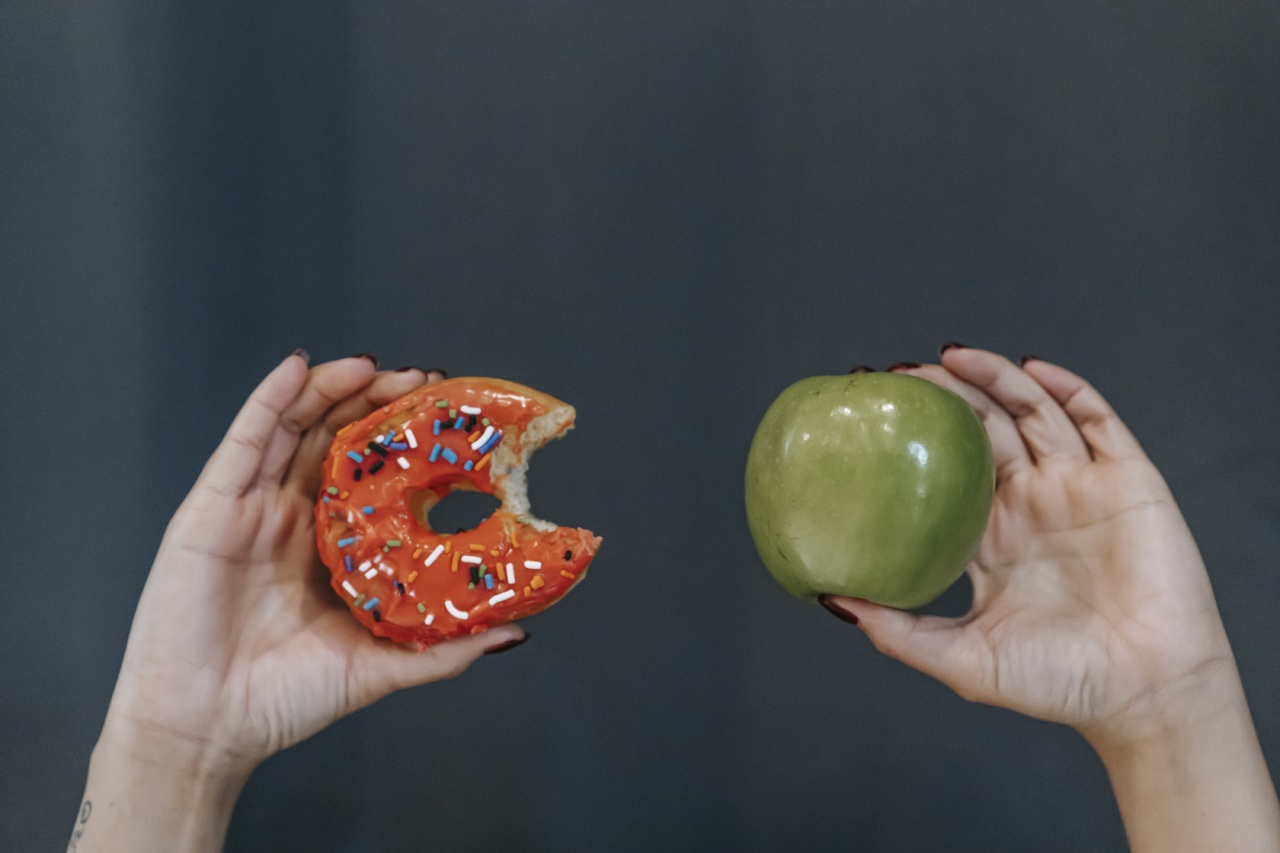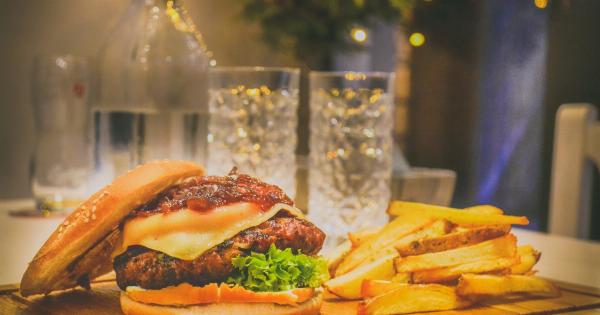The negative calorie diet is a popular dieting strategy that promotes the consumption of low-calorie foods that increase metabolism, help burn fat, and promote weight loss.
The concept behind the negative calorie diet is that some foods require more energy to metabolize than they provide, thus creating a negative calorie balance that leads to weight loss.
This diet is based on the principle that when you eat certain foods, your body burns more calories digesting them than the calories that the foods actually contain.
This calorie deficit is then used to fuel your metabolism, which in turn helps you burn more calories throughout the day.
The Science behind the Negative Calorie Diet
The negative calorie diet is based on the thermic effect of food, which refers to the energy that is required to digest, absorb, and transport food. Different foods have different thermic effects – some require more energy to digest than others.
Foods that are high in protein, fiber, and water are known for having higher thermic effects than foods that are high in fat or refined carbohydrates.
This means that your body needs to work harder to digest and absorb these foods, which in turn burns more calories and boosts your metabolism.
Another key aspect of the negative calorie diet is that it emphasizes the consumption of whole, minimally processed foods.
These foods tend to be low in calories, high in nutrients, and full of fiber – all of which help promote weight loss and a healthy metabolism.
30 Foods to Boost Metabolism
Here are 30 foods that are commonly included in the negative calorie diet. These foods are low in calories, high in nutrients, and are believed to boost metabolism and promote weight loss.
1. Spinach
Spinach is low in calories, high in nutrients, and packed with fiber. It’s a great source of iron, folate, and vitamins A and C.
2. Kale
Kale is low in calories and a great source of fiber, vitamin C, calcium, and iron. It’s also rich in antioxidants and has anti-inflammatory properties.
3. Broccoli
Broccoli is low in calories, high in fiber, and packed with vitamin C, potassium, and folate. It’s also a good source of antioxidants and anti-inflammatory compounds.
4. Cauliflower
Cauliflower is low in calories, high in fiber, and packed with nutrients like vitamin C, potassium, and folate. It’s also a good source of antioxidants and has anti-inflammatory properties.
5. Carrots
Carrots are low in calories, high in fiber, and packed with nutrients like vitamin A, potassium, and antioxidants.
They’re also a good source of beta-carotene – a compound that’s been linked to a reduced risk of certain chronic diseases.
6. Celery
Celery is low in calories and high in fiber. It’s also a good source of nutrients like vitamin K, folate, and potassium.
7. Cucumber
Cucumber is low in calories and high in water. It’s also a good source of nutrients like vitamin K, potassium, and antioxidants.
8. Zucchini
Zucchini is low in calories, high in fiber, and packed with nutrients like vitamin C, potassium, and magnesium. It’s also a good source of antioxidants and has anti-inflammatory properties.
9. Tomatoes
Tomatoes are low in calories and high in nutrients like vitamin C, potassium, and lycopene – a compound that’s been linked to a reduced risk of certain cancers.
10. Bell Peppers
Bell peppers are low in calories and high in nutrients like vitamin C, folate, and potassium. They’re also a good source of antioxidants and anti-inflammatory compounds.
11. Mushrooms
Mushrooms are low in calories and high in fiber. They’re also a good source of nutrients like vitamin D, potassium, and antioxidants.
12. Asparagus
Asparagus is low in calories, high in fiber, and packed with nutrients like vitamin C, potassium, and folate. It’s also a good source of antioxidants and anti-inflammatory compounds.
13. Beets
Beets are low in calories and high in fiber. They’re also a good source of nutrients like vitamin C, potassium, and antioxidants. Beets have also been shown to have detoxifying properties that can help support liver health.
14. Sweet Potato
Sweet potato is low in calories and high in fiber. It’s also a good source of nutrients like vitamin A, potassium, and antioxidants.
15. Squash
Squash is low in calories and high in fiber. It’s also a good source of nutrients like vitamin C, potassium, and antioxidants.
16. Watermelon
Watermelon is low in calories and high in water. It’s also a good source of nutrients like vitamin C, potassium, and antioxidants.
17. Grapefruit
Grapefruit is low in calories and high in fiber. It’s also a good source of nutrients like vitamin C and potassium. Grapefruit has also been associated with weight loss in some studies.
18. Apples
Apples are low in calories and high in fiber. They’re also a good source of nutrients like vitamin C and antioxidants, and their high fiber content has been linked to improved digestive health.
19. Berries
Berries are low in calories and high in fiber. They’re also a good source of nutrients like vitamin C and antioxidants. Different types of berries, like blueberries or strawberries, have different phytonutrients that provide unique health benefits.
20. Oranges
Oranges are low in calories and high in fiber. They’re also a good source of nutrients like vitamin C and potassium.
21. Peaches
Peaches are low in calories and high in fiber. They’re also a good source of nutrients like vitamin C and antioxidants.
22. Avocado
Avocado is low in calories and high in healthy monounsaturated fats. It’s also a good source of nutrients like vitamin C, potassium, and fiber.
The healthy fat content in avocado has been linked to improved heart health and a reduced risk of certain chronic diseases.
23. Salmon
Salmon is low in calories and high in protein and healthy fats. It’s also a good source of nutrients like vitamin D and omega-3 fatty acids, which have anti-inflammatory and heart-healthy properties.
24. Tuna
Tuna is low in calories and high in protein. It’s also a good source of nutrients like vitamin D and omega-3 fatty acids.
25. Chicken Breast
Chicken breast is low in calories and high in protein. It’s also a good source of nutrients like vitamin B6 and niacin.
26. Turkey Breast
Turkey breast is low in calories and high in protein. It’s also a good source of nutrients like vitamin B6 and niacin.
27. Eggs
Eggs are low in calories and high in protein. They’re also a good source of nutrients like vitamin D, choline, and selenium. Some studies have also linked egg consumption to improved weight loss and reduced risk of certain chronic diseases.
28. Greek Yogurt
Greek yogurt is low in calories and high in protein. It’s also a good source of calcium and probiotics, which can help promote gut health.
29. Almonds
Almonds are low in calories and high in protein and healthy fats. They’re also a good source of nutrients like vitamin E and magnesium.
The healthy fat content in almonds has been linked to improved heart health and reduced risk of certain chronic diseases.
30. Oats
Oats are low in calories and high in fiber. They’re also a good source of nutrients like manganese and thiamin. The high fiber content in oats has been linked to improved digestive health, reduced cholesterol levels, and improved weight loss.
Conclusion
The negative calorie diet is a popular dieting strategy that promotes the consumption of low-calorie foods that increase metabolism, help burn fat, and promote weight loss.
Eating a diet rich in fruits, vegetables, lean proteins, and healthy fats can help boost metabolism, promote weight loss, and support overall health and well-being.




























